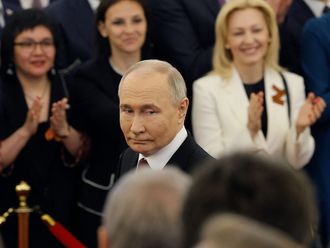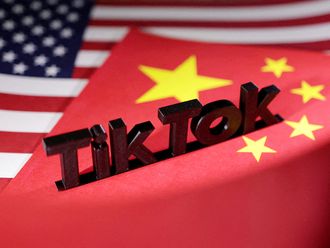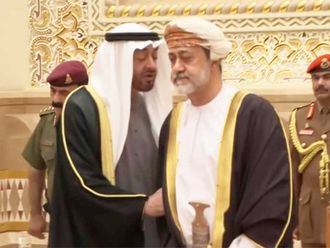Minsk: Western European leaders voiced cautious optimism after hammering out a Ukraine peace plan in Minsk on Thursday, hailed as a great victory by pro-Russian rebels but met with scepticism by war-weary civilians.
German Chancellor Angela Merkel, who was a driving force behind the negotiations, along with French President Francois Hollande, said she had “no illusions” and that “big hurdles” remained in ending the 10-month conflict.
“We now have a glimmer of hope,” she said in the Belarussian capital,adding that “concrete steps must of course be taken and there will still be big hurdles ahead”.
“I have no illusions, we have no illusions,” she said, “much work” remained.
Hollande said the deal included a “comprehensive political solution” and provided “serious hope, even if all is not done”.
Merkel’s Foreign Minister Frank-Walter Steinmeier said it represented neither “a comprehensive solution” nor a “breakthrough”.
He said he welcomed the truce plan but “without any exuberance” since “it was a difficult birth”.
“For some it will not be enough. Also we would have wished for more,” he said, voicing hopes that both sides had negotiated “seriously and with good intentions”.
The Ukraine peace deal gives “hope for a peaceful resolution” of the 10-month conflict and for development in rebel regions, pro-Russian separatist leader Alexander Zakharchenko said.
“This is a great victory for [self-proclaimed rebel regions] the Donetsk People’s Republic and the Lugansk People’s Republic,” he told the separatists’ news agency.
“We cannot but give Ukraine this chance, the whole country will change,” fellow rebel leader Igor Plotnitsky said after the two signed the deal.
“Our people are being given a chance to change their relationship, for Ukraine to change, to change in a civilised way, to stop killing its own people.”
“Ukraine will change thanks to the people of Donbass, the victory will be ours in any case.”
Putin, accused of backing the rebels, joked with journalists about whether they had slept or not after the marathon overnight talks.
“It wasn’t the best night of my life but the morning, in my opinion, is a good one because despite all the complexities of the negotiating process we still manged to agree on the main points,” he said.
Ukrainian President Petro Poroshenko said that “the contact group signed a document that we prepared with a great deal of tension.”
Civilians living in the war-torn rebel fiefdom of Donetsk met the announcement without enthusiasm.
“I don’t believe in it at all,” said Lyubov, 62, who would not give her last name. “Every time they sign an agreement, they say one thing and do another. I no longer trust anyone.”
“I hope that this will be a real ceasefire,” said Olena Ivashova, 30, who lives in the heavily damaged Donetsk neighbourhood of Tekstilnik.
“I’m so afraid that I haven’t been out in three weeks,” she said.











